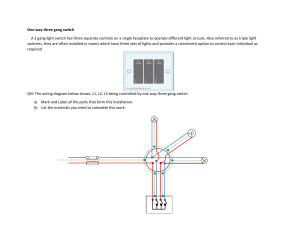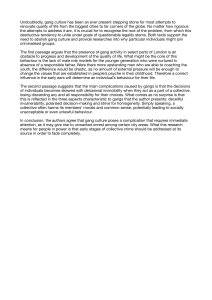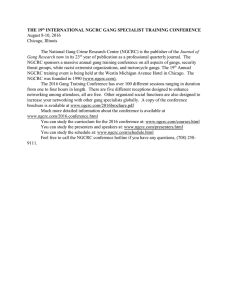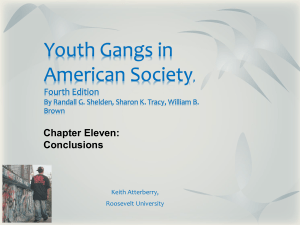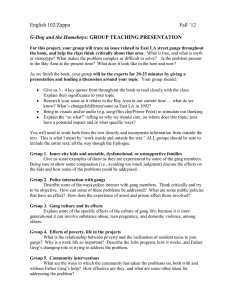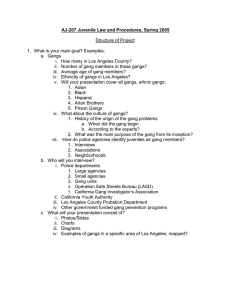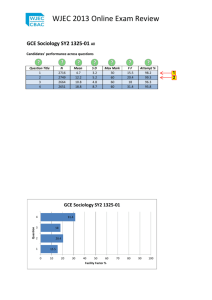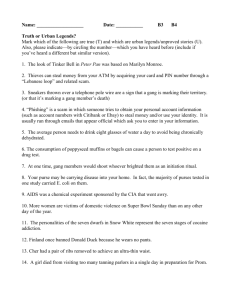Social Influences on Females Leading to Gang Affiliation
advertisement
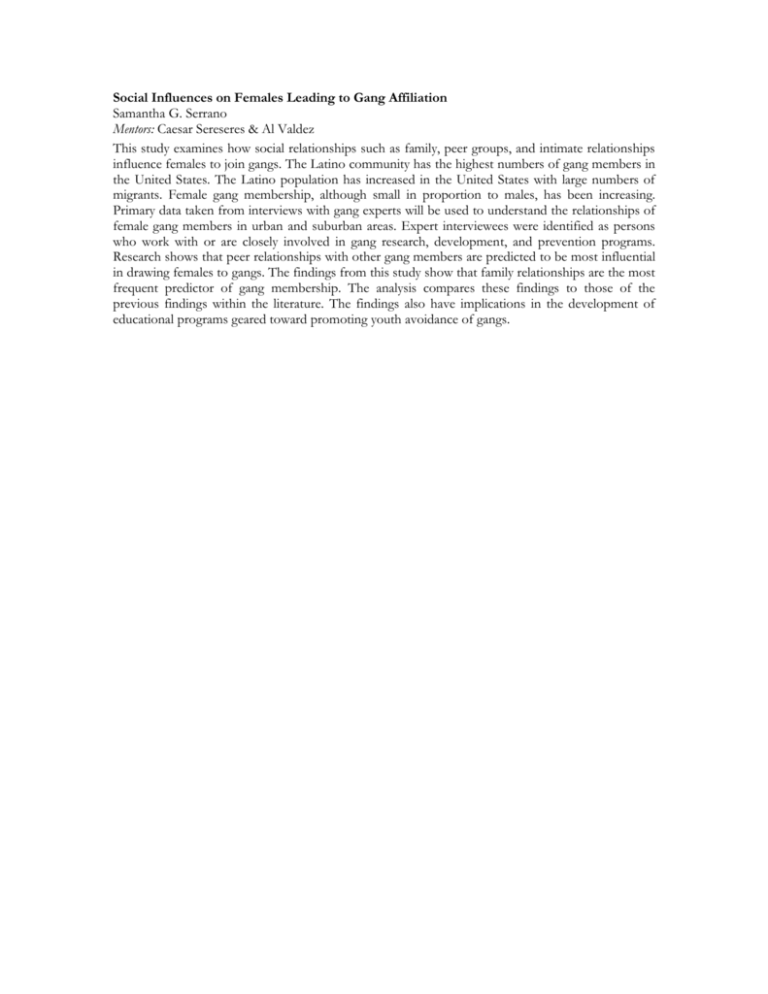
Social Influences on Females Leading to Gang Affiliation Samantha G. Serrano Mentors: Caesar Sereseres & Al Valdez This study examines how social relationships such as family, peer groups, and intimate relationships influence females to join gangs. The Latino community has the highest numbers of gang members in the United States. The Latino population has increased in the United States with large numbers of migrants. Female gang membership, although small in proportion to males, has been increasing. Primary data taken from interviews with gang experts will be used to understand the relationships of female gang members in urban and suburban areas. Expert interviewees were identified as persons who work with or are closely involved in gang research, development, and prevention programs. Research shows that peer relationships with other gang members are predicted to be most influential in drawing females to gangs. The findings from this study show that family relationships are the most frequent predictor of gang membership. The analysis compares these findings to those of the previous findings within the literature. The findings also have implications in the development of educational programs geared toward promoting youth avoidance of gangs.
